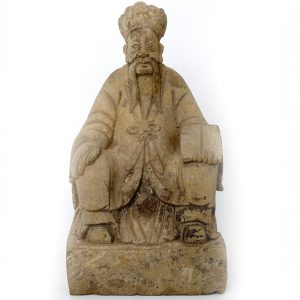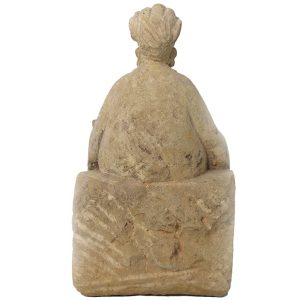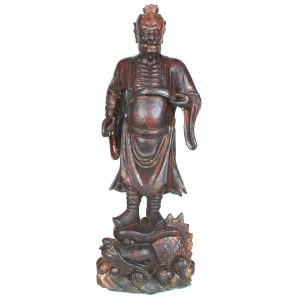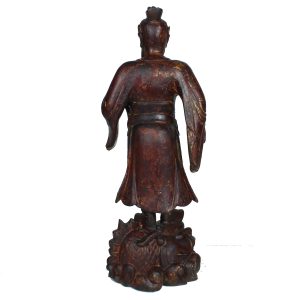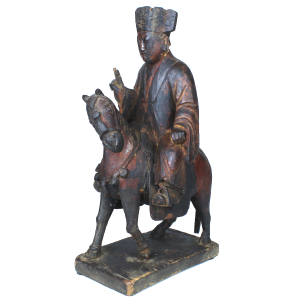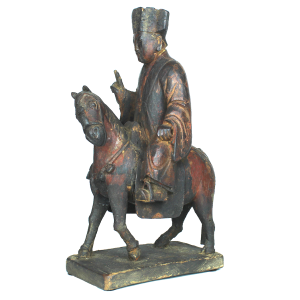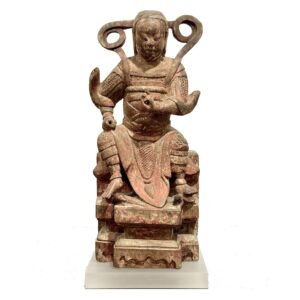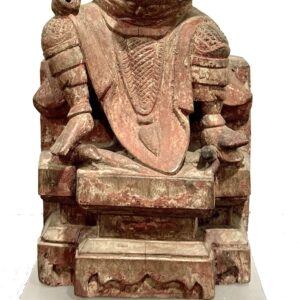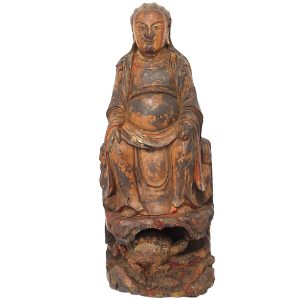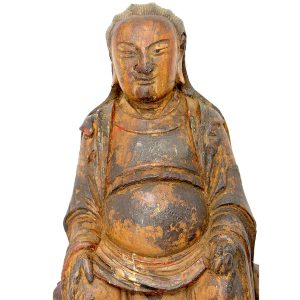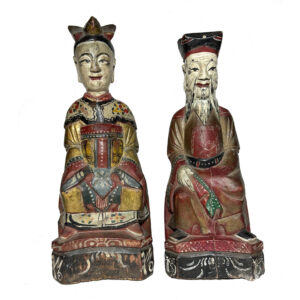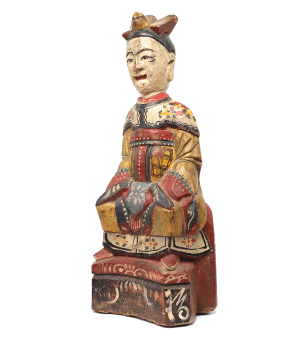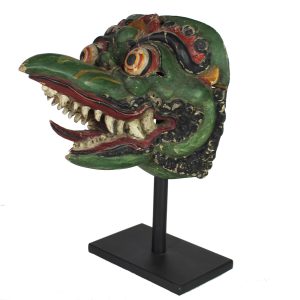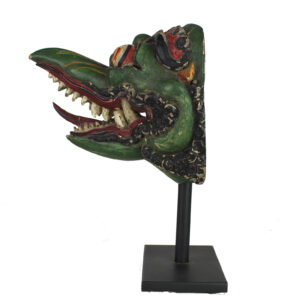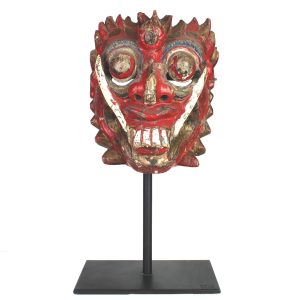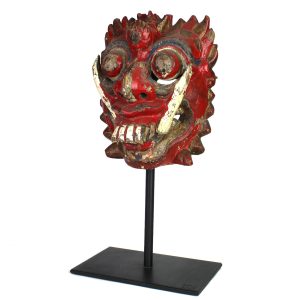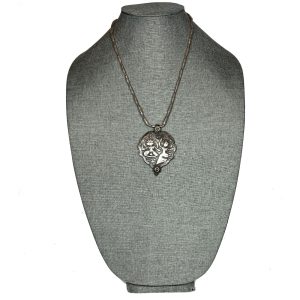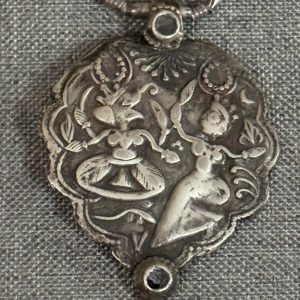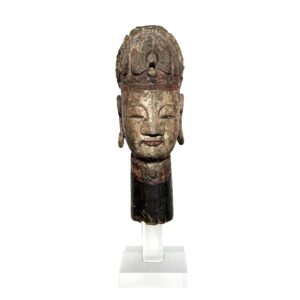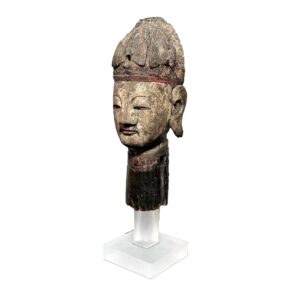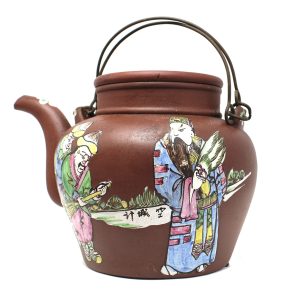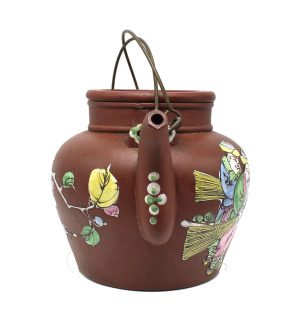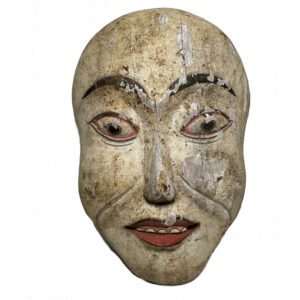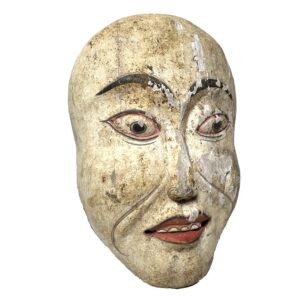Showing 37–48 of 57 results
-
Sale!


$725.00 Original price was: $725.00.$675.00Current price is: $675.00.
H: 8” W: 5” D4” | FREE SHIPPING within continental us
Wonderfully aged and weathered stone Tudi Gong reflecting many traits of this beloved Earth God holding a tael for wealth and fortune. He sat happily on an outdoor shrine, and would be happy to sit in a garden to bring an aura of past times to a new family.
-
Sale!


$1,095.00 Original price was: $1,095.00.$795.00Current price is: $795.00.
H: 15.5″ W: 5.5″ D: 4.5″| CALL 213-568-3030 OR EMAIL [email protected] FOR SHIPPING.
God of Literature, Books and Writing, Education, Learning and Examinations, Wen Chang is the patron saint of scholars. Thin, surly, demon like with exposed ribs and facial distortions, he stands on a dragon’ head among waves. Unique wonderful carving that would look spectacular on a desk.
-
Sale!


$795.00 Original price was: $795.00.$595.00Current price is: $595.00.
H: 13″ W: 4″ D: 7″ | FREE SHIPPING WITHIN CONTINENTAL U.S.
Taoist priest wearing a winged hat with a taotie warning against excess, and hands in the Sword Gesture used to cast out evil and offer blessings. Often on horses, priests were models of morality reflecting the Way of the Tao stressing harmony and oneness with nature.
-
Sale!


$1,250.00 Original price was: $1,250.00.$975.00Current price is: $975.00.
H: 15.25″ W: 6.75″ D: 6.75″ |CALL 213-568-3030 OR EMAIL [email protected] FOR SHIPPING
Zhenwu (Perfected Warrior) one of most important and powerful Taoist deities, is revered for magical powers to suppress demonic forces. Forceful wood provincial image for personal devotion reflecting his iconography: on throne, bare feet resting on snake and tortoise, celestial scarf and maille armor.
-
Sale!


$575.00 Original price was: $575.00.$495.00Current price is: $495.00.
H: 13″ W: 5″ D: 4.8″ | FREE SHIPPING WITHIN CONTINENTAL U.S.
Provincial carving of Zhenwu the Perfected Warrior, one of the most popular Taoist deities in the Ming/Qing dynasties, iconically shown standing on a snake and turtle, symbolizing those over whom he presides.
-
Sale!


$785.00 Original price was: $785.00.$625.00Current price is: $625.00.
H: Tudi Gong: 11.75″. Tudi Po 12.37″ | CALL 213-568-3030 OR EMAIL [email protected] FOR SHIPPING.
This happy benevolent couple are Taoist Earth God Tudi Gong and his wife Tudi Po placed on a home altar to assure an abundant harvest. Referred to as “Grandpa” and “Grand Ma” they wear vibrant Mandarin official’s attire, him with a mandarin square with a bird, and her with a phoenix headdress.
-
Sale!


$775.00 Original price was: $775.00.$675.00Current price is: $675.00.
H: 13.75″ W: 3″. D: 3.75″ | CALL 213-568-3030 OR EMAIL [email protected] FOR SHIPPING.
Featured in the original Spiderman movie, this rare vintage Balinese mask of Jatayu was used in Ramayana performances. He is the Hindu vehicle of Vishnu, one of the principal Hindu Gods triad. On a museum quality stand.
-
Sale!


$975.00 Original price was: $975.00.$775.00Current price is: $775.00.
H: 8.26″ W: 7.25″ D: 6″ | CALL 213-568-3030 OR EMAIL [email protected] FOR SHIPPING
Dance mask of Rangda, sacred Balinese demon-queen with 2 upper and lower fangs, scary teeth, jagged facial elements, menacing eyes, deep red. Featured in Spiderman 2002 movie on museum quality metal stand.
-
Sale!


$195.00 Original price was: $195.00.$150.00Current price is: $150.00.
Ht: 2.75”. W: 2.5” D: 0.25” 1.3oz. | FREE SHIPPING WITHIN THE CONTINENTAL U.S.
Rare silver pendant of joyful dancing Ganesh with Parvati framed within a betel shape with scalloped edges. Probably crafted and sold at a temple, it was worn for protection rather than good luck.
-
Sale!


$625.00 Original price was: $625.00.$495.00Current price is: $495.00.
H:14.75″ W: 4″ D: 4.5″ | free shipping within continental US
Antique Xiwangmu puppet head with 3 phoenixes in crown, traditional Qing head ware worn by the Empress for official occasions, ceremonies. Acrylic stand.
-
Sale!


$975.00 Original price was: $975.00.$695.00Current price is: $695.00.
H: 6” W: 8.5” D: 6.125” | FREE SHIPPING IN CONTINENTAL U.S.
Rare Yixing teapot with brown wash, bright painted enamel scene from Peking opera. Floral are wish for long and healthy life, perfect metaphor for sharing tea loved ones. Kiln seals in body, bottom, lid. For decoration only.
-
Sale!


$295.00 Original price was: $295.00.$225.00Current price is: $225.00.
H: 6.5″ W: 4.75″ D: 2″ | FREE SHIPPING WITHIN CONTINENTAL U.S.
Simple yet elegant carved and painted wood rice offering head of Dewi Sri, the Goddess of Rice, Agriculture and Fertility in Bali and Java. Made in the Balinese community living on the close Island of Nusa Penida, it is a rare vintage carving.
End of content
End of content

